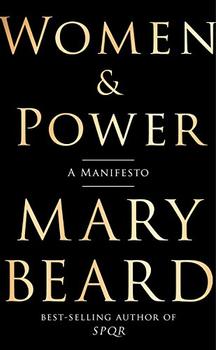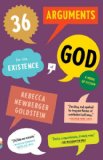Summary | Excerpt | Reviews | Beyond the book | Read-Alikes | Genres & Themes | Author Bio

A Spirited Manifesto
by Lesley HazletonThe Oxford Dictionary defines an agnostic as "a person who believes nothing is known or can be known of the existence or nature of God...a person who claims neither faith nor disbelief in God." In Agnostic: A Spirited Manifesto, author Leslie Hazleton shares her thoughts on what it means to be an agnostic in today's society. She states that there's a perception that agnostics "simply avoid thinking about the issues" or that to be an agnostic is to "sit back with a helpless shrug" when presented with questions about faith. Her book is meant to dispel this impression, and to "actively explore the paradoxes and possibilities inherent in the vast and varied universe of faith-belief-meaning-mystery-existence" as well as to "explore unanswerable questions with an open mind instead of approaching them with dismissive derision or with the solemn piety of timid steps and bowed head."
Agnostic is a product of Hazleton's blog, The Accidental Theologist, where she writes about "religion, politics, and existence" from the viewpoint of an agnostic, and in some respects her book reflects its origins. Each chapter is a short, self-contained examination of a theological topic that Hazleton reflects on in detail, combining her extensive reading on the subject, personal experience, and her conclusions. For example, in the chapter about God entitled "The Three-Letter Word," she begins with how she learned about God as a young Jewish girl educated in a British convent school. She discusses how over the centuries various cultures have developed a concept of an all-powerful being, particularly how modern Judeo-Christian societies have anthropomorphized God, referring to the divinity as "Him." She theorizes that most people aren't good at abstractions and therefore need to "concretize" – make metaphors to conceptualize things we can't really get our minds around. "Trying to make the unknowable knowable," she states, "we reduce it to what we know best. We make God human." Quoting Enlightenment philosopher Montesquieu to help illustrate this, she writes "Were triangles to invent a god, they would give him three sides." Hazleton concludes the chapter by bringing it back around to how she, as an agnostic, views the subject:
If there is one thing that can really be said with any certainty about God, it is that the name is utterly insufficient to the concept. What, then, if we were to refrain from laying claim to it? What if we were to drop the pretense of familiarity, the hubris of claiming to know the unknowable and trying to nail down the transcendent? What, that is, if we were to leave God out of the discussion – not as a matter of disbelief, but in full awareness of the insufficiency of the name, and in acknowledgment of whatever it is that we sense it might stand for?...There's an inherent paradox in trying to express infinity by enclosing space. By building walls, we shut out mystery; we enclose ourselves in belief, in the illusion of knowing.
Other chapters discuss such concepts as death, the afterlife and heaven; the human soul; the mystical experience of the divine; and the meaning of life.
Hazleton is exceptionally well read and uses quotes from a wide range of sources: theologists St. Augustine, St. Paul, and Maimonides; scientists such as Einstein and Richard Feynman; philosophers like Voltaire and Kierkegaard; and writers such as Graham Greene and playwright John Patrick Shanley, among many others, covering a broad spectrum of thought on the subject of religion. Hardly a page is included that doesn't contain a comment from another source, and in the hands of a lesser writer this technique may have become tiresome. However, Hazleton weaves these into her discourse so seamlessly, that they become a source of interesting counterpoint to her arguments rather than a distraction.
The author generally avoids attacking any one perspective; her purpose is to explain the agnostic point of view rather than convert the religious or ridicule people of faith. She does, however, condemn the conviction of those who are certain about facets of existence which by their nature can't be known (God, Heaven, one's soul, etc.) – and that includes not only evangelical Christians such as Rick Warren but avowed atheists like Richard Dawkins and Christopher Hitchens as well. "I am tired of conviction," she states, and derides "wisdom presented as fact" and "mistaking conviction for evidence, intensity for fact."
"Purpose driven" pastor Rick Warren, for instance, preaches that "you were put here to prepare for eternity" and that "earth is the staging area, the preschool, the tryout for your life in eternity." Really? Life as a practice session? How could anyone possibly take it seriously if so?
While most of the book is low-key and should be inoffensive to those who consider themselves religious, statements such as these may raise the blood pressure of some readers.
According to Hazleton, Agnostic is meant to be "an ongoing adventure of the mind," and she accomplishes this goal admirably. Her well-reasoned arguments and explanations of huge theological concepts from an agnostic viewpoint will definitely give readers much to think about and doubtless win her many fans among people of faith as well as those who harbor doubts.
![]() This review was originally published in The BookBrowse Review in June 2016, and has been updated for the
April 2017 edition.
Click here to go to this issue.
This review was originally published in The BookBrowse Review in June 2016, and has been updated for the
April 2017 edition.
Click here to go to this issue.

If you liked Agnostic, try these:

by Mary Beard
Published 2017
"A modern feminist classic." - The Guardian
From the internationally acclaimed classicist and New York Times best-selling author comes this timely manifesto on women and power.

36 Arguments for the Existence of God
by Rebecca Goldstein
Published 2011
A hilarious, heartbreaking, and intellectually captivating novel about the rapture and torments of religious experience in all its variety.
Your guide toexceptional books
BookBrowse seeks out and recommends the best in contemporary fiction and nonfiction—books that not only engage and entertain but also deepen our understanding of ourselves and the world around us.